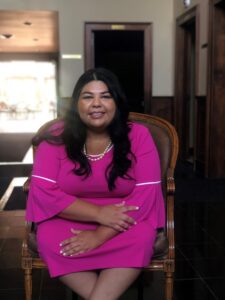 Want to learn something to the core? Go deep.
Want to learn something to the core? Go deep.
Renee Penalver, assistant professor of psychology at Coe College, discusses how to be better engaged in a subject.
I am a cognitive psychologist interested in how the bilingual experience impacts different types of memory. In my current research, I investigate how word frequency and bilingual language proficiency impact source memory. Source memory is a type of explicit memory that is memory for context associated with an event (e.g., time, space, people, sounds, feelings). Similarly, I have investigated the effects of the bilingual experience on implicit memory. Implicit memory is memory that is automatic. I have also investigated other types of cognition (attention) and how it is impacted by bilingualism.
Cognitive Psychology
In our increasingly competitive world, it is not enough to teach our students content, but to provide real-life skills to make sure they are successful beyond college. Community engagement is a high-impact pedagogical vehicle to teach students both content and provide them with opportunities for skill development.
Cognitive Psychology is a sub-discipline in Psychology; sample topics include memory, attention, language, decision-making, and advanced methodologies and statistics. A prominent theory in this field is called depth of processing. This theory states that the deeper the level of “study”, the longer amount of time information is retained. Thus, community engaged classrooms can offer a deeper level of processing than lecture alone. When information is processed on a deeper level it is better retained than when information is processed superficially. Using this logic, community engaged classrooms may provide opportunities for stronger levels of learning.
In the current study, through a higher education and nonprofit partnership, students create digital stories of those impacted by Dementia and reflect on these experiences using cognitive psychology terms and theories. This is a strong pedagogical device to illustrate how important theories in cognition are applied to everyday life.
Data indicates these experiences have created a strong sense of social responsibility and perceptions of enhanced critical thinking skills among students. By partnering with vulnerable populations as participants and incorporating technology, this classroom is advancing community-engaged research in the social sciences and spanning the boundary of the academy and practice.
